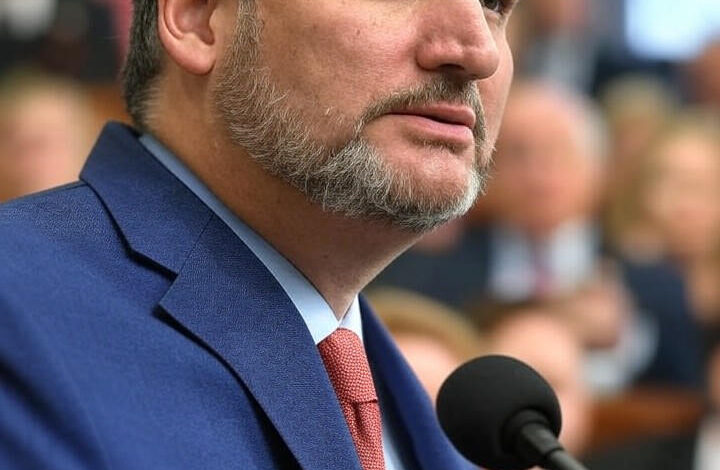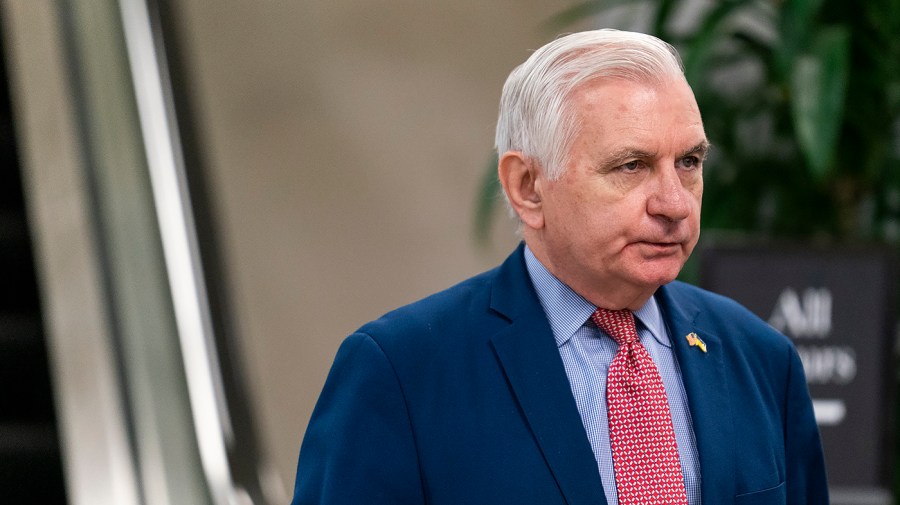Ted Cruz SLAMS FCC Chair’s Mafia Tactics Against Kimmel’s Suspension

UPDATE: In a dramatic confrontation, Senator Ted Cruz of Texas has vehemently criticized Federal Communications Commission (FCC) Chairman Brendan Carr for his aggressive tactics against comedian Jimmy Kimmel. Cruz’s remarks come in light of Kimmel’s indefinite suspension from ABC following controversial comments about conservative figure Charlie Kirk, which some perceived as inflammatory.
Cruz, speaking on his podcast earlier today, likened Carr’s threats to mafia-style intimidation, labeling them as “dangerous as hell” and warning of potential ramifications for free speech. This shocking turn of events highlights a growing rift within Republican ranks regarding the use of government power against media personalities.
Carr, a Trump appointee, has been vocal in urging Disney and other broadcasters to take decisive action against Kimmel, suggesting serious FCC repercussions if they fail to comply. Despite expressing relief over Kimmel’s suspension, Cruz underscored the risks of government overreach, stating, “It might feel good right now to threaten Jimmy Kimmel, but when it’s used to silence every conservative in America, we will regret it.”
This unfolding drama is set against a backdrop of escalating concerns over media censorship and regulatory authority. Cruz’s comments, reported by CBS News, reflect unease about weaponizing federal agencies against perceived political adversaries, particularly in an era characterized by intense partisan media battles.
In response to the situation, FCC Commissioner Anna Gomez shared her views on MSNBC, calling Carr’s threats “unbelievably dangerous” and indicative of a slippery slope towards authoritarianism. This sentiment has resonated widely on social media platforms like X (formerly Twitter), with users condemning the move as a fascist overreach tied to broader political agendas, including the controversial Project 2025.
Carr’s aggressive stance is not new; he has previously targeted media outlets for alleged biases. His recent public pressure on ABC regarding Kimmel’s remarks, which jokingly referenced violence against Tesla and conservative figures, has prompted investigations into potential incitement. Cruz, while celebrating Kimmel’s removal, reiterated concerns that such tactics could backfire, haunting Republicans if power dynamics shift in Washington.
Industry experts have raised alarms regarding the implications of Carr’s approach for future media regulation. The FCC historically maintains a mandate to ensure fairness in broadcast content, yet Carr’s proactive warnings have raised eyebrows, even among fellow conservatives. As noted by USA Today, Cruz’s analogy comparing Carr to a “mob boss” emphasizes how such rhetoric can erode public trust in regulatory bodies.
The fallout from this controversy extends beyond individual personalities, as debates surrounding the limits of comedy in today’s polarized political landscape intensify. Cruz’s break from party lines, as reported by LiveMint, indicates a potential resistance to executive overreach within the GOP, especially given Carr’s alignment with Trump-era policies. Analysts suggest that this internal conflict could influence future FCC decisions regarding media mergers and content guidelines.
As Kimmel’s suspension continues to spark discussions on free expression, Cruz has warned that allowing government threats against broadcasters sets a “dangerous” precedent. This ongoing saga tests the delicate balance between accountability and censorship in American media.
Looking ahead, the implications of this episode could reshape regulatory priorities at the FCC, prompting calls for clearer guidelines on the agency’s involvement in content disputes. While Carr defends his actions as essential for public discourse, critics—including members of his own party—argue they tread dangerously close to authoritarianism.
As the situation develops, it remains crucial to monitor how these tensions will influence both media regulation and political discourse moving forward. The stakes are high, and the outcome could have lasting effects on the landscape of free speech in America.






